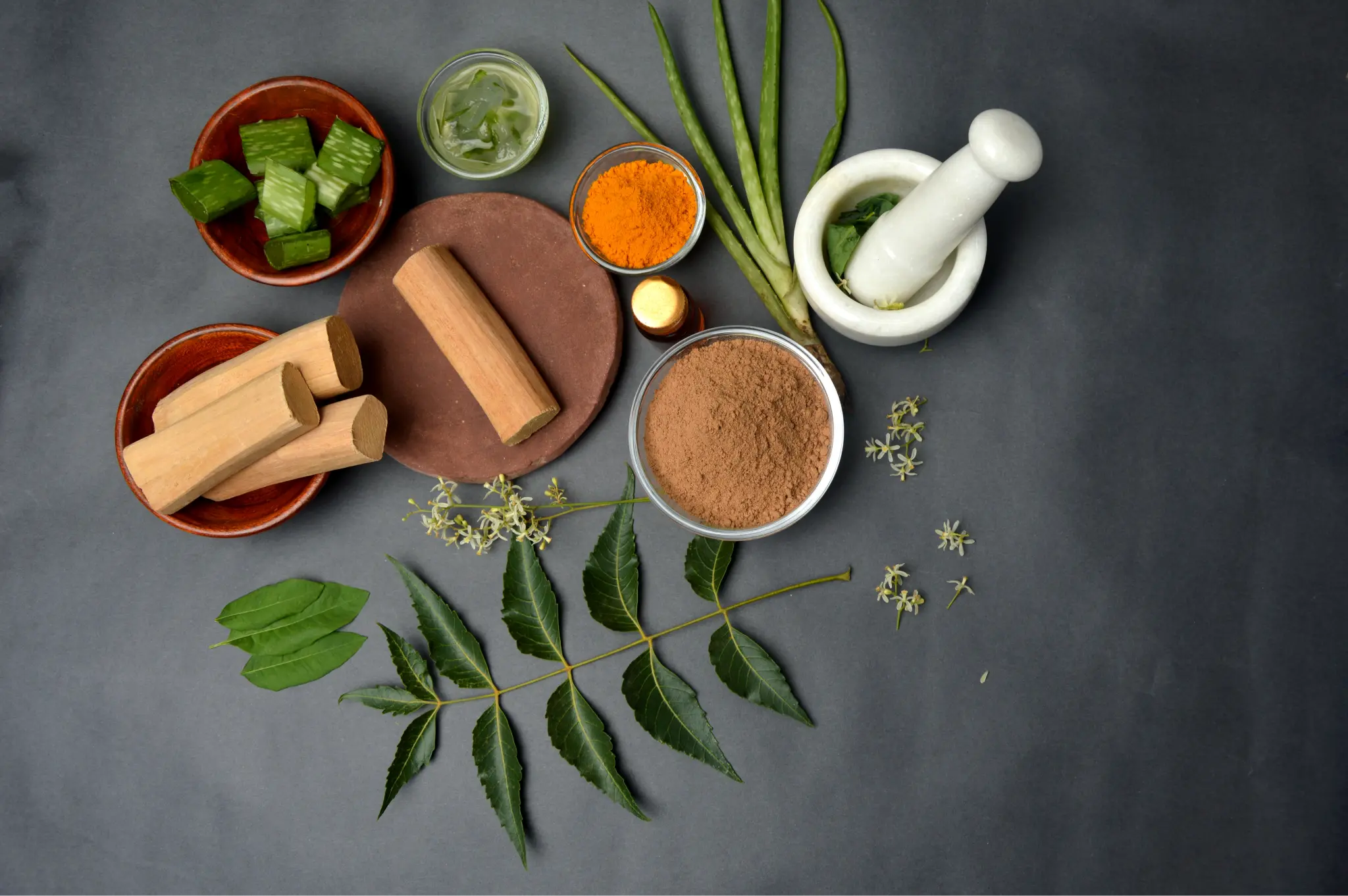Discover the Profound Conveniences of Ayurveda and Enhance Your Daily Life
Ayurveda, an ancient system of medication originating from India, offers a comprehensive structure for improving well-being via its alternative principles. As we explore the intricacies of Ayurveda, it comes to be apparent that its techniques hold the prospective to transform day-to-day routines right into rituals of health and mindfulness, increasing the question of just how one may start to integrate these classic principles right into contemporary life.
Understanding Ayurveda Concepts
Although Ayurveda is frequently regarded as an alternative recovery system, its principles are deeply rooted in an alternative understanding of health and wellness. Central to Ayurveda is the idea that optimal health and wellness is achieved with an equilibrium of spirit, mind, and body, highlighting the interconnectedness of these components. This ancient method identifies that each individual possesses an one-of-a-kind constitution, or "prakriti," which influences their physical, mental, and psychological well-being.
Ayurveda advocates for individualized approaches to wellness, incorporating dietary standards, way of living modifications, and herbal treatments customized to individual requirements. It urges the usage of natural therapies that advertise self-healing and boost vigor. The technique also highlights the significance of preventative care, concentrating on preserving equilibrium instead of simply dealing with illness.

The Three Doshas Explained
A fundamental aspect of Ayurveda is the concept of the three doshas, which are vital forces that govern psychological and physiological procedures within the body. These doshas are Vata, Pitta, and Kapha, each standing for unique mixes of the 5 components: planet, water, air, fire, and area.
Vata, defined by air and area, is in charge of motion and communication. It regulates bodily functions such as respiration, circulation, and nerve impulses. People with a predominant Vata dosha tend to be creative, energised, and versatile, however may also experience anxiety and uneasyness when imbalanced.
Pitta, connected with fire and water, embodies transformation and metabolism. This dosha manages metabolic rate, digestion, and body temperature - Ayurveda. Those with a solid Pitta existence are commonly focused, passionate, and driven, yet they might end up being susceptible to irritability and swelling when out of balance
Kapha, created by planet and water, provides framework and stability. It is connected to growth, resistance, and lubrication within the body. Individuals with a dominant Kapha dosha are typically tranquil, nurturing, and patient, yet they may fight with lethargy and add-on if their energy is out of balance.

Comprehending these doshas is vital for accomplishing harmony in both body and mind.
Advantages for Physical Health And Wellness
Various benefits for physical health and wellness can be derived from the principles of Ayurveda, which stresses an all natural strategy to wellness. By concentrating on the equilibrium of the three doshas-- Vata, Pitta, and Kapha-- Ayurveda advertises ideal functioning of the body. This individualized method permits individuals to tailor their lifestyle, diet, and therapies according to their unique constitution and current imbalances.
One substantial benefit of Ayurveda is its emphasis on preventative care. By integrating nutritional recommendations, natural supplements, and way of living practices, Ayurveda seeks to keep health rather than simply dealing with illness. This positive position can boost immunity and decrease the threat of persistent diseases.
Moreover, Ayurvedic techniques such as yoga exercise and meditation contribute to boosted physical vigor and versatility (Ayurveda). The use of natural herbs and treatments can relieve Recommended Reading common ailments, enhance digestion, and improve detoxing procedures. Normal Ayurvedic treatments, such as Panchakarma, are designed to cleanse and revitalize the body, cultivating total physical wellness
Inevitably, Ayurveda urges a well balanced lifestyle, promoting not just physical health but also a deeper link in between environment, mind, and body, leading to continual health.
Enhancing Psychological Health
The holistic approach of Ayurveda expands past physical health and wellness, considerably improving mental health. Central to Ayurvedic approach is the concept of doshas, which are vital powers that influence individual constitution and psychological states.
Ayurveda employs various strategies to support mental wellness, including herbal solutions, meditation, and yoga exercise. Adaptogenic herbs such as Ashwagandha and Brahmi are known to lower tension and improve cognitive Read More Here feature, while daily reflection methods enhance mindfulness and emotional stability. In addition, yoga exercise acts as a powerful device to relieve anxiousness and promote internal peace, incorporating breath control and stances that line up the mind and body.
Furthermore, Ayurveda urges a balanced regimen, emphasizing appropriate rest, beneficial meals, and anxiety administration strategies. By fostering self-awareness and encouraging a link to nature, Ayurveda cultivates a resilient mind, ultimately bring about enhanced mental wellness and a deeper sense of satisfaction in day-to-day live.
Incorporating Ayurveda Into Every Day Life
Incorporating Ayurveda into day-to-day live can be a transformative journey towards alternative wellness. This ancient system of medicine emphasizes balance in the body, mind, and spirit, offering practical tools for boosting wellness and vigor. To start, individuals can assess their unique dosha-- Vata, Pitta, or Kapha-- to customize way of living options that straighten with their constitution.
Integrating Ayurvedic principles begins with conscious consuming. Consuming seasonal, locally-sourced foods that fit one's dosha promotes food digestion and power levels. Additionally, exercising everyday routines, or dinacharya, such as waking early, oil pulling, and meditation establishes a basing structure for wellness.
Herbal treatments, directed by an Ayurvedic specialist, can further sustain certain health concerns. Including yoga and breathing exercises encourages physical adaptability and psychological clearness.


Verdict
Including Ayurveda right into daily life uses an extensive structure for accomplishing all natural health Read Full Report and health. By understanding private doshas and their influence on physical and psychological health, people can customize their lifestyle selections efficiently.
Central to Ayurveda is the idea that optimal health and wellness is attained through a balance of mind, body, and spirit, highlighting the interconnectedness of these components.Ayurveda advocates for customized techniques to wellness, including dietary guidelines, way of life adjustments, and natural solutions customized to specific needs.Additionally, Ayurveda highlights the function of the atmosphere in wellness, identifying that exterior factors, such as seasons, climate, and lifestyle choices, can impact an individual's wellness.The alternative technique of Ayurveda expands past physical wellness, dramatically boosting psychological health.Including Ayurveda right into day-to-day life offers a detailed structure for attaining alternative health and wellness.
Comments on “The Role of Ayurveda in Stress Management and Mental Clarity”